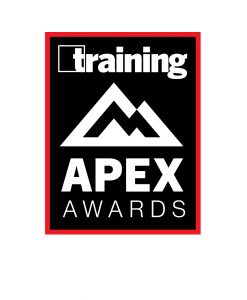
A few years ago, during the pandemic, One Nevada Credit Union (ONC) contacted its members by phone to simply ask them, “How are you doing? Do you need anything from us to help you get through this tough economic time?”
These calls generated tremendously positive feedback. To maintain this positive relationship with its member base, ONCUniversity was asked to develop a structured training program that would allow front-line staff to contact members by phone without sounding or feeling like a telemarketer. The result was M.O.P. or Member Outreach Proram. The training rollout encompassed 100 percent of employees—all departments, branches, and contact center employees companywide.
Program Details
The credit union wanted to make sure employees were not phoning members for the first time with a “just call them” approach. The focus was on allowing employees to utilize their personalities while still maintaining a sense of professionalism and naturalness.
The program had online prerequisite courses that must be completed before attending the mandatory three-hour classroom session. The prerequisites courses, “Your Voice Matters” and “Speaking Clearly,” had a post-course test that must be passed with a minimum of 90 percent before attending the classroom session.
In the classroom, employees were reminded of the paradigm shift that has taken over the banking industry—that the majority of people no longer visit branches to conduct business face-to-face; they now do most of their banking digitally on smartphones and iPads. This paradigm shift results in less personal interaction and can lead to a sense of indifference if not dealt with positively and proactively.
Each class began with opening remarks from ONC’s president/CEO as he reminded staff that these are NOT sales calls. One early focus of the class was to create the proper mindset while speaking to members over the phone—to think of yourself as more of a consultant and friend as opposed to a sales-searching bank employee.
The course then turned to mastering member outreach (even if an employee is nervous) by delving into each of ONC’s objective points:
- Research each member before calling.
- Know what problems you can solve for the member.
- Know your guide by heart (and follow it like an actor, not a robot).
- Adopt a warm-calling persona.
- Introduce yourself early on.
- Don’t sell.
- Ask questions and listen to the answers.
- Be friends with the word, “No.”
- Remember they’re human.
To help staff with consistency while maintaining naturalness, ONC developed call guides for employees. These guides (not scripts) allowed employees to follow a “discussion roadmap” depending on where the conversation was leading to. The emphasis on “guides, NOT scripts” also provided the employees a sense of ownership in the calls they were making to members. Each individual was allowed to edit their copy of the call guide and replace certain words with ones they were more comfortable with or edit phrases with a “this is how I would say this” context.
After personal edits, the class began the role-playing and feedback segment by practicing many different types of calls out loud for their classmates, including voicemail messages, live person conversations, leaving a message with a person, etc.
The role-play and feedback categories covered many of the training’s objectives:
- Clarity
- Tone
- The use of “crutch words”
- Confidence level
- Sincerity
- Naturalness
- Overall “feel” of the call
Reinforcement started the first day after class as participants worked with their class-assigned “call-buddy” with mandatory practice sessions. Call-buddies called each other and left practice voicemail messages and had practice conversations (all of which were recorded and played back) and then self-evaluated themselves. The mandatory call-buddy practice sessions had a minimum of three calls a day for one week.
After polishing their skills for the week, each employee left a practice voicemail message for their supervisor to evaluate. Then the employee had a practice conversation with their supervisor, which also was evaluated. Upon successful completion, the supervisor gave them the green light to start making live warm calls to members in hopes of creating long-term and loyal members.
Long-term reinforcement also plays a major role in the M.O.P. as random calls are pulled from the recorded calls log and evaluated for the feedback criteria noted above. Because M.O.P. is designed to be a staple for the credit union, ONC regularly checks and evaluates a minimum of 10 calls a week.
Results
The long-term goal of the Member Outreach Program is to create a more loyal and long-lasting membership base that will utilize the credit union’s services when making financial decisions. ONC uses financial metrics related to its annual C.A.R.V.I.C. goals as the barometer for the program’s success:
- Checking accounts
- Auto loans
- Residential loans
- Visa credit cards
- Insurance and investments
- Commercial real estate loans
ONC was more than halfway to meeting all of its C.A.R.V.I.C. goals at the time of application and on pace to exceed them last year.
If goals are met, all credit union employees receive a discretionary profit-sharing contribution to their 401K accounts. Those amounts are tiered based on how many C.A.R.V.I.C. goals are realized.



